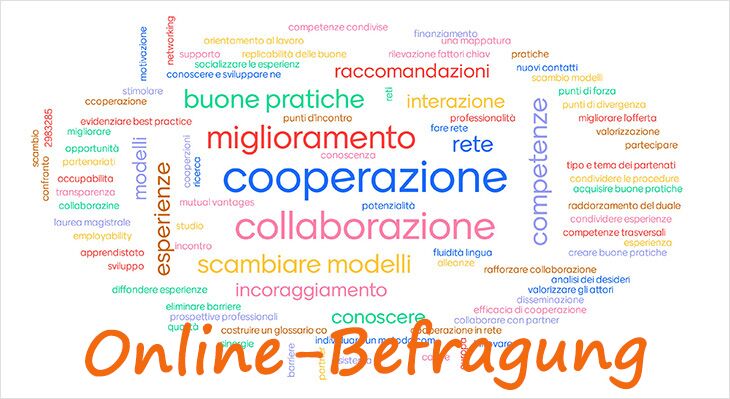New Study addresses German-Italian Cooperation in Vocational Education and Training
What is the situation with German-Italian relationships in vocational education and training? What cooperation projects and partnerships are there and who are the actors involved? These questions are the focus of a new research project as part of the two countries' TVET cooperation.

The more than 100 participants would certainly have enjoyed a real-life meeting to discuss the topic of cooperation and exchange, but the virtual kick-off event for the German-Italian partnership study on 9 and 12 November was nevertheless well received by the varied players from Italy and Germany. The project’s launch attracted surprisingly large numbers from the various partnership projects in vocational education and training. During the presentation of the research project, the participants were asked about their backgrounds, interests and expectations. It became clear that the desire to strengthen and intensify networks and cooperation was the foremost expectation for the study. GOVET, together with the Federal Ministry of Education and Research (BMBF), the Italian Ministry of Education (MI) and other partners of this bilateral cooperation, had put out a call for strong participation in the joint research project.
Why a Study on Cooperation?
The study concentrates on partnerships and cooperation arrangements of all kinds with a focus on vocational education and training. The increasing requests for cooperation partners at German organisations in Italy, and the feedback from guests at the kick-off event, demonstrate that there is great interest in collaboration projects. Established support activities within strategic partnerships have already been recorded for a long time, along with data on learning mobility, through the European exchange programme Erasmus+. However, there are also numerous other cooperation projects for which reliable data is currently lacking. The research project will therefore concentrate in particular on identifying the players in this landscape and, in future steps, will examine how such formal and informal networks and partnership channels are designed in practice. A particular focus here is on learning in dual training settings and on identifying best-practice examples with the aim of developing and further strengthening dual training. The project will determine the potential for designing learning partnerships, exchange projects and similar schemes as well as the scope for strategic further development and support, providing added value for the future of bilateral cooperation. The Bolzano-based Institute of Social Research and Opinion Polling apollis is accompanying the study by creating a map of stakeholders and building on this with qualitative and quantitative surveys.
German-Italian Cooperation in Vocational Education and Training
Intensive cooperative activities and projects have been taking place between Italy and Germany since 2012. In the constructive and lively cooperation, there is consensus that vocational education and training plays a key role particularly for the economic development of both countries, but also for their social and cultural development. In December 2019, the Joint Declaration of Intent was renewed, which affirms the keen interest of the two countries in continuing and intensifying the cooperation. One priority of the current cooperation phase is to encourage more actors to participate in the bilateral cooperation, such as companies, chambers of industry and commerce, and trade unions, thereby strengthening cooperation projects and vocational learning mobility between the two countries.
Background
Germany and Italy have always had close cultural and economic ties. Italy is Germany’s fifth most important trade partner, while for Italy Germany ranks in first place. In a worldwide comparison, the growth of economic relationships between the two countries is above average, and in 2018 the record trade volume was increased further to more than €128 billion (AHK Outlook, 2019).